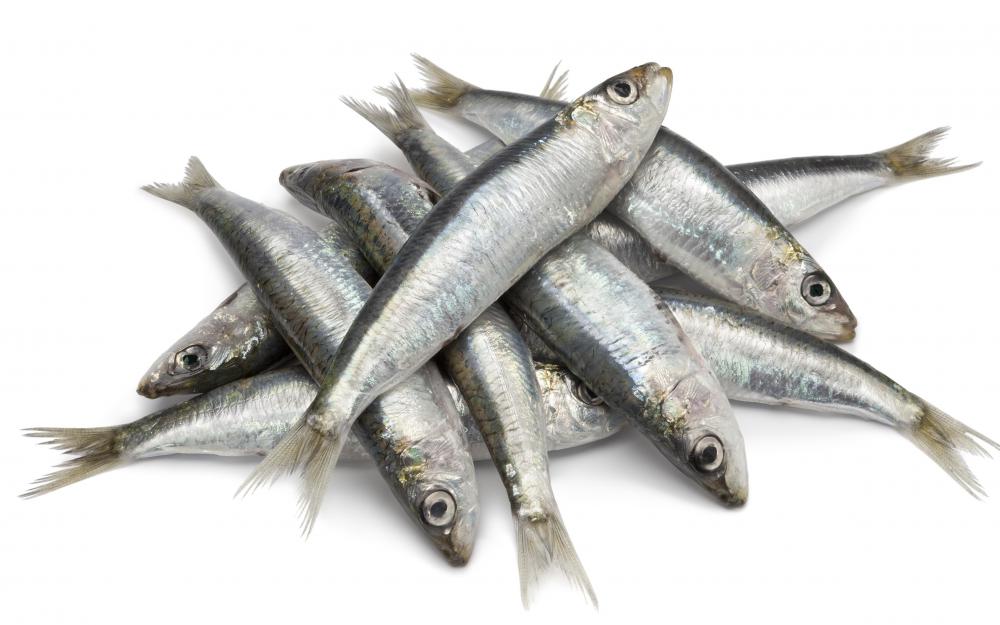At WiseGEEK, we're committed to delivering accurate, trustworthy information. Our expert-authored content is rigorously fact-checked and sourced from credible authorities. Discover how we uphold the highest standards in providing you with reliable knowledge.
What are Polyunsaturated Fatty Acids?
Polyunsaturated fatty acids have two or more double bonds within the molecule. They are called essential fatty acids because the human body is unable to manufacture its own. Some forms of polyunsaturated fatty acids can be obtained from plant-based foods, and other forms can be obtained only from animal sources. Unlike saturated fat, many studies have shown that polyunsaturated fats are good for the body, particularly for the heart and brain.
The difference between polyunsaturated fat and monounsaturated fat is that polyunsaturated fat has more than one double bond situated between the carboxylic acid and the methyl group. The first double bond can be located either in the third, sixth or ninth position away from the methyl group, which then determines whether it is omega-3, omega-6 or omega-9. Omega-3 and omega-6 are examples of polyunsaturated fatty acids, and omega-9 is an example of monounsaturated fatty acids. It is important to consume omega-3 and omega-6 in a healthy ratio of about 1 to 3 in order for the body to be able to absorb them properly.

Alpha-linolenic acid (ALA) and linoleic acid (LA) are the two forms of polyunsaturated fatty acids that cannot be manufactured in the body, so they must be obtained from the diet. ALA is a form of omega-3 fatty acid, and it is available from plant-based foods such as nuts and seeds, soybeans, avocados and leafy greens. After it is in the body, the ALA is manufactured into two other forms of omega-3 known as eicosapentaenoic acid (EPA) and docosahexaenoic acid (DHA). EPA and DHA also can be obtained from animal sources such as salmon, sardines, mackerel and shrimp. In some cases, the body is unable to use ALA, and thus EPA and DHA from animal sources are essential.

LA is a form of omega-6, which can be obtained from plant-based foods such as nuts and seeds, avocados and many vegetable oils, such as soybean, sunflower and corn oil. After it is in the body, it is manufactured into two other forms of omega-6 known as arachidonic acid (AA) and gamma linolenic (GLA). AA and GLA also can be obtained from animal sources, such as eggs, poultry, meat and dairy. Again, these forms of polyunsaturated fatty acids are essential in cases when the body is unable to use LA to manufacture its own.

The health benefits of polyunsaturated fatty acids include an improved heart health, improved memory and protection against cancer, arthritis and asthma. Studies show that the healthy oils have the ability to lower high cholesterol and triglyceride levels, as well as to maintain a healthy heart rhythm. Negative side effects of polyunsaturated fatty acids can also occur if the omega-6s are consumed in excess amounts. Some of these side effects include heart disease, arthritis, cancer, osteoporosis and depression.
AS FEATURED ON:
AS FEATURED ON:














Discuss this Article
Post your comments